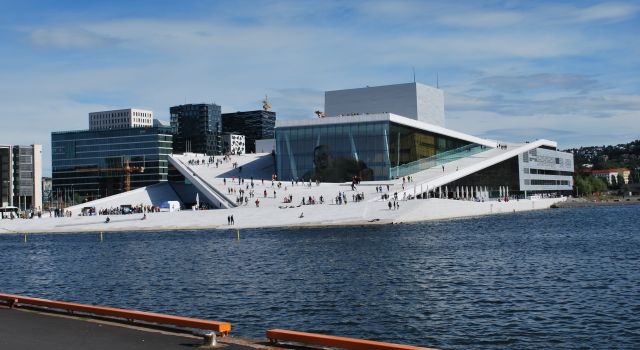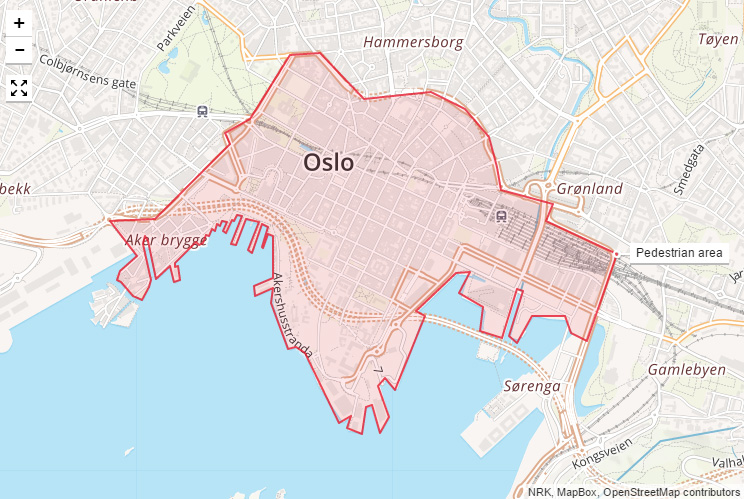ORIGINAL: ARS TECHNICA
Oct 20, 2015
Oslo will be the first capital to ban cars. "Arrangements will be found" for disabled people.
 |
| Oslo opera house. They do things differently in Scandinavia. |
Oslo's new city council—59 elected representatives that will manage the city for the next four years—has announced that it will institute a permanent and comprehensive ban of cars in the city centre. This will make Oslo the first European capital where cars are permanently banned, plus it's a strong indicator that similar bans may be enacted in other major cities across the continent.
The newly elected council, which is made up of the Labour Party, the Greens, and the Socialist Left, said that the Oslo car ban would be enacted "by 2019." Ahead of the ban, some 60 kilometres (37 miles) of bicycle lanes will be built, plus there'll be a "massive boost" to public transport spending, Reuters reports. "We want to make it better for pedestrians, cyclists. It will be better for shops and everyone," said Lan Marie Nguyen Berg of the Green party.
 |
| The Norwegian website NRK published this map of Oslo, showing the proposed car-free zone. |
While cars will be banned from the city centre, buses and trams will still be allowed, and "arrangements will be found" so that disabled people aren't exiled and vehicles can still make deliveries to stores. Oslo has a population of about 650,000, and about 350,000 cars.
Completely banning cars from a city centre is a bold move to say the least. Some European cities have flirted with car bans over the last few years—just last month Paris banned cars for a single day, to combat air pollution—and some cities, such as London and parts of Madrid, have congestion charges to reduce the amount of car traffic. Oslo is fairly small as far as capital cities go, though, which probably makes the ban a little more palatable. It's hard to imagine the upheaval that would occur from banning cars in London.
Still, as metropolitan population densities continue to increase, and air pollution stubbornly persists, other small cities may follow in Oslo's footsteps. Larger cities, though, will probably stick with more stringent emissions controls: London, for example, should roll out a new "ultra low emissions zone" in 2020 that will hit diesel and other high-emissions vehicles with an extra surcharge. Eventually, it wouldn't be surprising if megacities completely ban vehicle emissions, requiring all cars to be electric.
Comments
Post a Comment